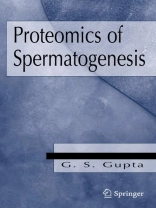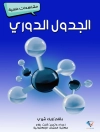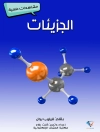Recent developments of experimental techniques in cellular and molecular biology have made it possible to understand the molecular biology of male gametogenesis in greater detail. This book focuses on the description of specialized proteins, which are dominantly and/or specifically expressed in germ cells and localized in spermatozoa. There is an urgent need to classify proteins of spermatogenic cells with a view of their functions, and their applications in the regulation of fertility and in understanding infertility. The understanding of structural properties of male germ cell specific proteins can offer vulnerable points for targeted intervention in testis without generalized effects on stages of spermatogenesis. Besides targeted action in male germ cells, sperm specific proteins and polypeptides may also offer potential application in the development of a contraceptive vaccine.
Jadual kandungan
Spermatogenesis.- Paracrine Role of Sertoli Cell.- Non-Steroidal Signal Molecules in Spermatogenesis.- Specificity of Retinol, Estrogen and Steroid Linked Proteins.- Homeostasis of Germ Cells and Apoptosis.- Nuclear Skeleton Proteins: Non-Histones.- Nuclear Skeleton Proteins: Chromosomal Basic Proteins.- Microtubules.- Microtubule Based Motor Proteins.- Sex Chromosomal Proteins and Autosomal Homologues.- Cell Cycle Components.- Isoproteins in DNA Synthesis.- DNA Repair and Recombination.- Transcriptional Control.- Proteins in Transcriptional Activity of Spermatogenic Cells.- Transcription Factors Associated with Spermatogenesis.- Proto-Oncoproteins.- G Proteins and Associated Signal Transduction Molecules.- Protein Kinases.- Protein Phosphatases.- Ion Channels and Aquaporins.- Action of Phospholipases.- Acrosomal Enzymes.- Acrosomal Proteins (Non-Enzymatic).- Actins and Myosins.- Cell Adhesion Proteins.- Metalloproteases and Metalloprotease Inhibitors.- Isoenzymes in Energy Pathways.- Fibrous Sheath, Dense Fibers, and Plasma Membrane of Sperm.- Proteins in Antiperoxidation.- Quality Control of Germ Cell Proteins.- Cancer Associated Testis Antigens.- Selective Group of Germ Cell Specific Proteins.- Sperm Maturation in Epididymis.
Mengenai Pengarang
Dr. Gupta is a former Professor and Chairman of the Department of Biophysics, Panjab University, Chandigarh, India. His primary areas of research are molecular and cellular biology, reproductive biology/reproductive immunology, enzymology/enzyme technology, and radiation biology.
As a visiting researcher, he has worked at many institutions, including Northwestern University in Evanston, IL, the Center of Immunopathology and Experimental Immunology, INSERM, and the Center of Cytogenics and Immunogenetics, INSERM.
He has been honored by various Indian agencies such as Council of Scientific and Industrial Research (CSIR), University Grants Commission (UGC), Indian Council of Medical Research (ICMR), and Department of Science and Technology (DST).
Professor Gupta has made significant research contribution in the field of Reproductive Molecular Biology and Molecular Radiation Biology and published 120 original research articles and reviews in international journals.
He is the recipient of several awards and international fellowships including a WHO fellowship and the INSERM fellowship. Indian Council of Medical Research has honored him by conferring Swaran Kanta Dingley Oration Award of 1993 for his research contribution and extending knowledge in male reproduction. Associated with several national and international scientific societies, he has chaired scientific sessions and delivered invited lectures at national and International conferences.
Professor G.S. Gupta holds master’s degrees in Physical Chemistry and Biochemistry from Lucknow University, Lucknow, and a Ph.D. in Biophysics from Panjab University, Chandigarh (India).












